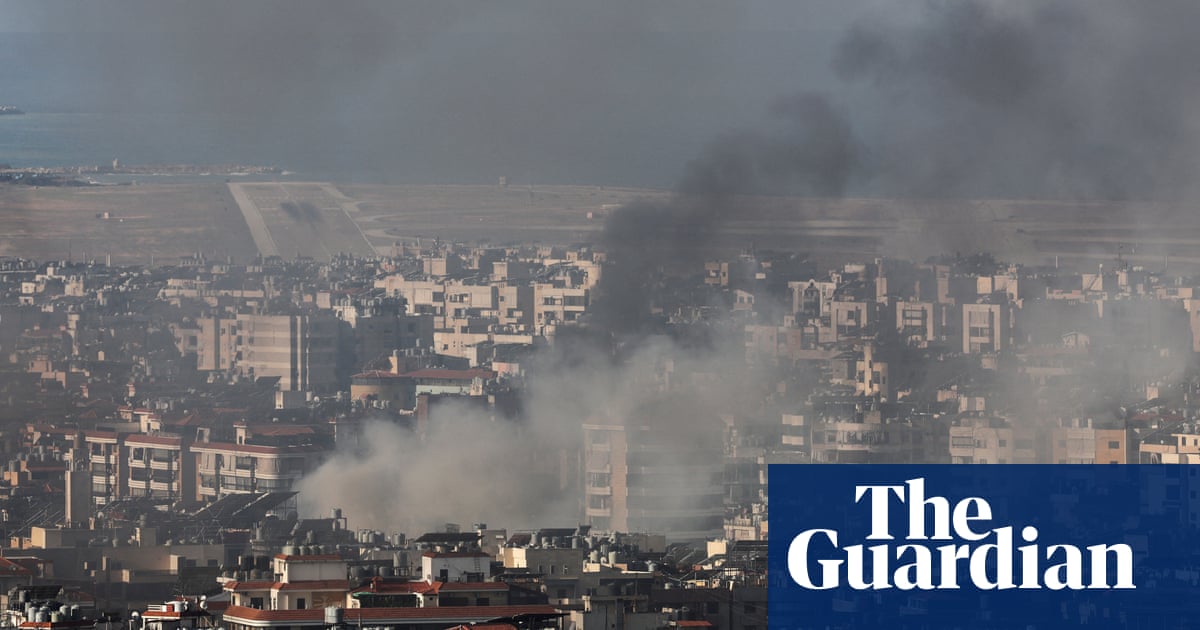The UK has laid on a charter flight to evacuate Britons from Lebanon and said it is ready to commission more for the 5,000 nationals and their dependants remaining in the country.
Beirut’s international airport remains open but ministers and officials are preparing contingency plans for sea and air rescues via Cyprus should the security situation in Lebanon deteriorate to the point at which commercial flights are stopped.
The Dan Air plane landed at Birmingham international airport just before 8.40pm, having stopped off in Bucharest en route.
Speaking on Wednesday afternoon, David Lammy, the foreign secretary, said: “The first charter flight taking British nationals out of Lebanon has now departed. We have arranged another flight for tomorrow, and further flights over the coming days for as long as there is demand and it is safe to do so.”
Thousands of Britons and other foreign nationals have left Lebanon since Israel stepped up its campaign against Hezbollah just over a fortnight ago, spurred into leaving by repeated airstrikes against leaders of the militant group and missile launch sites around the country.
John Healey, the defence secretary, visited Cyprus and the RAF’s Akrotiri base, where 700 extra personnel are based to help deal with military threats and, he said, to “guarantee the safety of Brits in Lebanon”.
Brig Paul Maynard, the joint taskforce commander, said there was a range of options for an emergency evacuation should the airport be closed. That included rescue “by sea and by air”.
Defence sources have indicated the most likely form of emergency rescue would be via sea, as happened during the last Lebanon war in 2006, but the principal focus has been asking Britons to leave while commercial options remain available.
Healey also said that two RAF Typhoon jets had been in the air “ready to engage” in the Middle East on Tuesday night as Iran launched its ballistic missile attack on Israel, but had had no suitable targets to hit.
The fighters had previously shot down Iranian drones in April, but on this occasion were not needed because Typhoons do not have the capability to eliminate high-speed ballistic missiles.
“The nature of the attack was different,” the defence minister said on a visit to the Akrotiri base. “Last night, UK planes were in the skies. They were ready to engage. They did not need to do so.”
Healey said that he had spoken to his Israeli opposite number, Yoav Gallant, on Wednesday morning and had assured him “we totally condemn the Iranian missile attacks overnight, and we will stand steadfast with Israel in their right to security”.
The UK’s major concern, he added, was to “avoid this conflict spiralling into a wider regional war”, and he urged Gallant to support plans for a 21-day ceasefire, though there is no sign of either side calling a halt to fighting.
Keir Starmer, in Brussels on an official visit, also called for restraint. “We do need to pull back from the brink and to encourage all parties to find a way to de-escalate, and for a political solution to the very many fronts of the crisis in the Middle East,” the prime minister said.
When asked about the prospect of Israeli retaliation against Iran, he said Israel did have the right to security but declined to be drawn any further.

